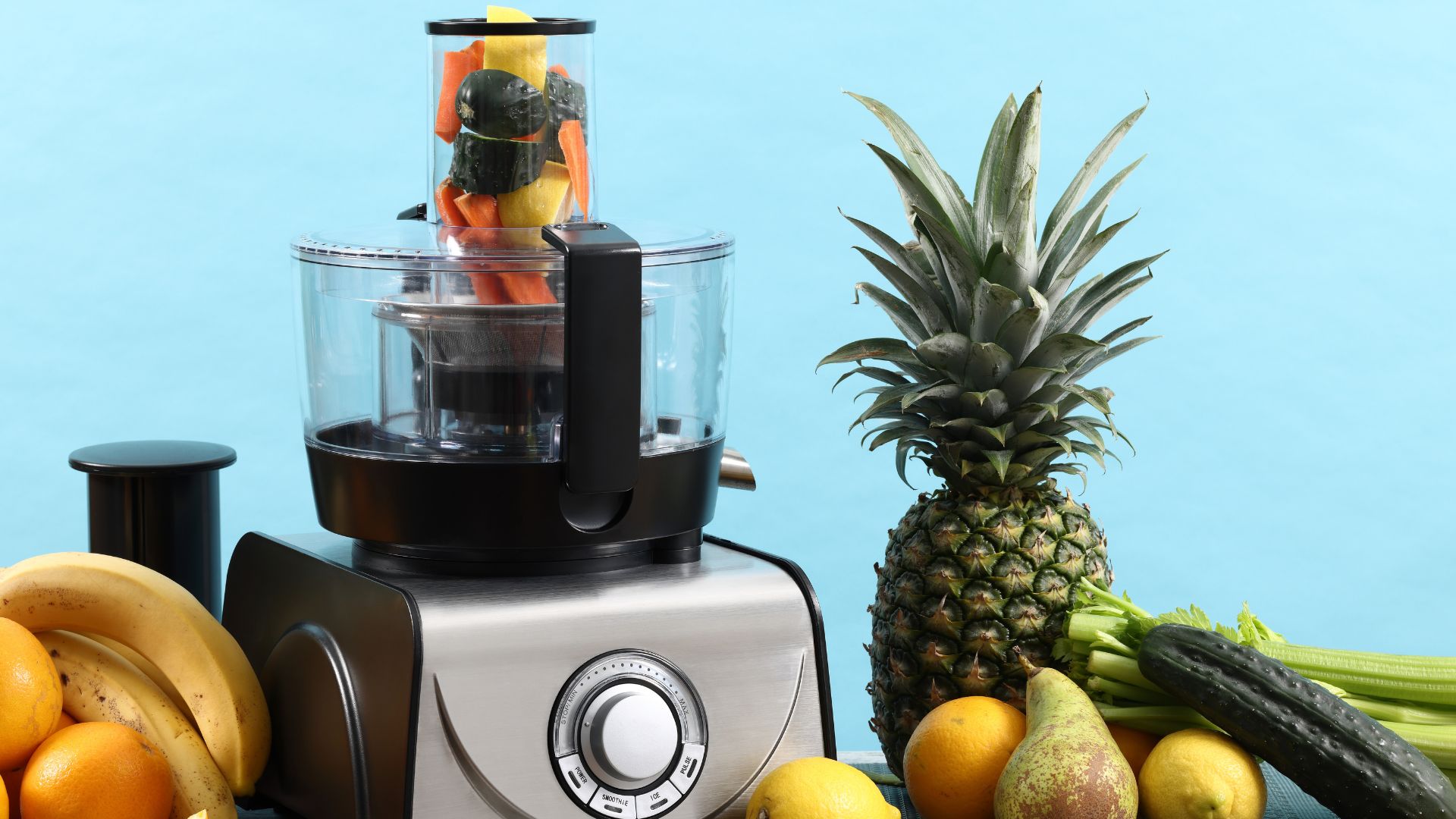Do you dream of turning your passion for food and creativity into a thriving business? Look no further than your trusty blender! This versatile tool isn’t just for whipping up smoothies anymore.
It’s a powerful gateway to entrepreneurial success, unlocking a world of possibilities for creating and selling innovative blender-based products.
Unleashing Your Blender’s Entrepreneurial Potential:
- Beyond Smoothies: Think beyond the ordinary and explore unique product ideas. Craft gourmet dips and spreads, frozen yogurt alternatives, healthy baby food, energy-boosting protein shakes, and even nut butters.
- Customization is Key: Cater to diverse dietary needs and preferences. Offer vegan, gluten-free, sugar-free, and keto-friendly options to expand your reach and attract a wider audience.
- Seasonal Delights: Highlight the freshest seasonal ingredients. Create summer-inspired frozen treats with fresh fruit or cozy winter soups featuring locally sourced vegetables.
- Convenience Counts: Cater to busy lifestyles. Offer ready-to-blend smoothie packs, pre-portioned frozen ingredients, or even subscription boxes for recurring revenue.

Building Your Blender Business:
- Market Research: Identify your target audience and understand their needs. Analyze existing competitors and market trends to determine unique selling points for your products.
- Branding and Packaging: Develop a strong brand identity that resonates with your target audience. Invest in eye-catching packaging that showcases the quality and uniqueness of your products.
- Pricing Strategy: Set competitive prices that factor in production costs, desired profit margin, and market viability. Consider offering discounts, bundles, or subscription options for added value.
- Direct-to-Consumer Power: Take control of your sales channels. Utilize online platforms like your own website, social media, and e-commerce marketplaces to reach a wider audience.
- Local Collaborations: Partner with local businesses like farmers markets, cafes, or health stores to expand your reach and distribution network.
Marketing and Promotion:
- Social Media Savvy: Share mouthwatering photos, engaging recipes, and behind-the-scenes content to build an online community and attract potential customers.
- Influencer Partnerships: Collaborate with food bloggers, health influencers, or local celebrities to gain exposure and credibility for your brand.
- Storytelling Power: Share your entrepreneurial journey, passion for food, and commitment to quality to connect with customers on a deeper level.
- Customer Engagement: Encourage customer reviews, host online contests, and offer loyalty programs to build a loyal following and foster positive word-of-mouth marketing.
Additional Resources for Blender-Based Entrepreneurs:
- Online Courses: Explore online courses and workshops dedicated to food entrepreneurship, branding, and marketing.
- Industry Associations: Join industry associations like the National Association for the Self-Employed (NASE) for resources and support.
- Food Safety Regulations: Ensure compliance with food safety regulations and obtain necessary permits and licenses for your business.
Embracing the Journey:
Building a successful blender-based business requires dedication, hard work, and a passion for creating delicious and innovative products. With the right tools, strategies, and a positive attitude, you can turn your culinary dream into a thriving reality. So, blend your way to success, entrepreneur!

Beyond the Basics: Scaling Your Blender Business
As your business grows, you’ll naturally need to scale your operations. Here are some tips to help you take your blender-based business to the next level:
Production Efficiency:
- Invest in equipment: Upgrade to high-quality blenders and food processors to handle larger volumes. Consider automating repetitive tasks like chopping and peeling.
- Standardize recipes: Ensure consistency and quality by creating detailed recipes with precise measurements and instructions.
- Optimize workflow: Streamline your production process to minimize waste and maximize efficiency. Consider batching production and utilizing temperature-controlled storage.
Expanding Your Reach:
- Wholesale Opportunities: Partner with grocery stores, restaurants, and cafes to sell your products wholesale.
- Subscription Services: Offer subscription boxes featuring curated blends, seasonal recipes, and exclusive perks.
- Franchise Model: Consider franchising your business to expand your reach and leverage existing brand recognition.
Building a Strong Team:
- Hire talented individuals: Assemble a team with expertise in food science, marketing, operations, and customer service.
- Foster a positive work environment: Encourage collaboration, creativity, and open communication within your team.
- Invest in training and development: Provide employees with the knowledge and skills they need to succeed.
Sustainability and Ethics:
- Source responsibly: Choose locally sourced, organic ingredients whenever possible.
- Minimize waste: Implement waste reduction strategies throughout your production process.
- Embrace fair trade practices: Partner with suppliers who prioritize ethical sourcing and fair labor practices.
Staying Ahead of the Curve:
- Continuous Innovation: Keep your product line fresh and exciting by introducing new flavors, seasonal offerings, and limited-edition blends.
- Embrace technology: Utilize online ordering systems, inventory management software, and social media marketing tools to streamline operations and increase sales.
- Stay informed: Attend industry conferences, webinars, and workshops to stay up-to-date on market trends, regulations, and consumer preferences.
Remember:
Building a successful blender-based business is a marathon, not a sprint. Be patient, persistent, and adaptable. With hard work, dedication, and a commitment to creating exceptional products, you can blend your way to entrepreneurial success.
Frequently Asked Questions
Q: What are some innovative blender-based product ideas?
A: Beyond smoothies, consider dips and spreads, frozen yogurt alternatives, healthy baby food, protein shakes, nut butters, and even seasonal soup options. Cater to diverse dietary needs with vegan, gluten-free, and keto-friendly versions.
Q: How can I research the market for my blender-based business?
A: Analyze existing competitors and market trends to identify gaps and opportunities. Consider target audience preferences and dietary needs. Utilize online resources, industry reports, and consumer surveys to gather valuable data.
Q: What are some tips for branding and packaging my blender-based products?
A: Develop a strong brand identity that resonates with your target audience. Invest in eye-catching packaging that showcases the quality and uniqueness of your products. Use clear labels with detailed information about ingredients, nutritional values, and allergens.
Q: How do I set competitive prices for my blender-based products?
A: Factor in production costs, desired profit margin, and market viability. Consider offering discounts, bundles, or subscription options for added value. Research competitor pricing strategies and analyze market trends to determine optimal price points.
Q: What are some effective marketing strategies for selling blender-based products?
A: Utilize social media platforms to share engaging content like photos, recipes, and behind-the-scenes stories. Partner with relevant influencers for exposure and credibility. Offer free samples and host online contests to generate buzz and excitement.
Q: How can I scale my blender-based business for growth?
A: Invest in efficient equipment to handle larger production volumes. Standardize recipes and streamline your workflow to maximize output. Consider partnerships with wholesale distributors and explore subscription service options.
Q: How do I build a strong team for my blender-based business?
Assemble a team with expertise in food science, marketing, operations, and customer service. Foster a positive work environment that encourages collaboration and creativity. Provide training and development opportunities to equip your team with the skills they need to succeed.
Q: What are some ways to ensure the sustainability of my blender-based business?
A: Source ingredients responsibly and prioritize locally sourced and organic options. Implement waste reduction strategies throughout your production process. Partner with suppliers who share your commitment to ethical sourcing and fair labor practices.
Q: How can I stay ahead of the curve in the blender-based food industry?
A: Continuously innovate and develop new products to keep your offerings fresh and exciting. Embrace technology and utilize online tools to streamline operations and enhance customer experience. Attend industry conferences and workshops to stay informed about market trends, regulations, and consumer preferences.


1 thought on “Blender for Entrepreneurs: Create and Sell Innovative Blender-Based Products”
Comments are closed.